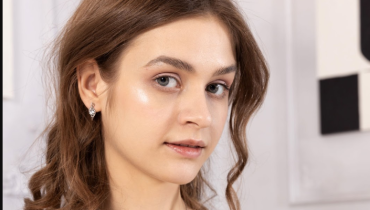For years, Ivy Kelly lived life at full speed — juggling work, travel, and social events while barely finding time to breathe. “I thought exhaustion was just part of being a modern woman,” she recalls. “Coffee in the morning, wine at night — and repeat.”
But after years of late nights, takeout meals, and stress, her body began sending warning signs. “I felt bloated, foggy, and constantly tired,” she says. “My skin lost its glow, and my digestion was unpredictable.” That’s when Ivy began exploring what she calls “the reset button for my body”: detox supplements for women.
The Wake-Up Call: When Energy Isn’t Enough
It started with something simple — fatigue that wouldn’t fade, even after a weekend of rest. “I’d wake up tired, my face puffy, and my concentration scattered,” Ivy explains. After routine bloodwork showed mild inflammation and liver enzyme imbalance, her doctor suggested lifestyle adjustments. “He told me my liver was overworked — not from alcohol, but from daily toxins: preservatives, pollution, even stress hormones,” she says. “That’s when I realized detox wasn’t a fad. It was maintenance.”
Like many women, Ivy had been skeptical about “detox.” “I’d seen all the marketing — skinny teas, miracle cleanses, weird powders,” she laughs. “But when I started researching real, science-backed detox supplements, I realized there’s a difference between hype and health.”
She began learning about nutrients that support the liver’s natural detoxification process — vitamins, antioxidants, and herbal extracts backed by studies from the National Center for Complementary and Integrative Health (NCCIH) and the Harvard Health Publishing. “Our bodies already detox naturally,” Ivy explains. “But certain nutrients — like vitamin C, milk thistle, turmeric, and glutathione — can help the liver and kidneys do their job better.”
The Science Behind Detoxification
Contrary to popular belief, detox isn’t about flushing toxins overnight. It’s about supporting the body’s built-in pathways — mainly in the liver, kidneys, and gut — through proper nutrition and hydration. “Your liver is like your body’s filter,” Ivy says. “It processes everything: caffeine, alcohol, medication, even environmental chemicals.” When it’s overburdened, toxins can linger longer, causing fatigue, breakouts, and hormonal imbalance.
According to the Mayo Clinic, while extreme detox diets aren’t recommended, supporting liver health through specific nutrients can be beneficial. Compounds like milk thistle (silymarin) have been shown to protect liver cells from oxidative stress, while curcumin — the active compound in turmeric — has anti-inflammatory properties that may enhance liver function. “I wasn’t trying to erase toxins overnight,” Ivy explains. “I was trying to give my organs the fuel they needed to do their job naturally.”
Finding the Right Detox Supplements
At first, Ivy was overwhelmed by the options: detox teas, liver cleanse kits, juice powders, capsules. “Some looked promising; others screamed scam,” she says. So, she created a checklist to separate science from marketing:
- Evidence-based ingredients: “If I couldn’t find it in a PubMed study, I skipped it.”
- Transparency: Brands that disclosed sourcing, dosage, and testing ranked higher.
- No harsh laxatives: “Real detox shouldn’t mean running to the bathroom,” she laughs.
- Synergy over quantity: “Five well-studied ingredients beat twenty trendy ones.”
She eventually found a daily supplement blend containing milk thistle, artichoke extract, chlorella, vitamin C, and zinc. “I noticed subtle changes after two weeks — less bloating, better digestion, clearer skin,” she says. “But the real shift was in my energy. I didn’t crash mid-day anymore.”
Over time, she paired the supplement routine with lifestyle changes — more water, less processed food, better sleep. “Detox isn’t just a pill; it’s a partnership between what you take and how you live,” Ivy explains.
The Role of Antioxidants in Detox
One key to effective detox support is antioxidants. “Every cell in your body produces waste — just like a city produces garbage,” Ivy says. “Antioxidants are like the cleanup crew.” Nutrients like vitamin C, vitamin E, selenium, and alpha-lipoic acid help neutralize free radicals that cause cellular damage. “When you’re stressed, your body produces more oxidative waste — and women, especially, are more vulnerable during hormonal changes,” she adds.
She began incorporating antioxidant-rich foods — blueberries, spinach, green tea — alongside her supplements. “It’s not about cleansing for aesthetics,” she says. “It’s about building resilience.” Studies from the Journal of Clinical Medicine confirm that antioxidants improve liver enzyme balance and reduce inflammatory markers, especially in women over 30.
The Gut–Liver Connection
Through her journey, Ivy discovered another crucial piece: gut health. “If your digestion is sluggish, toxins can’t exit efficiently,” she explains. The gut microbiome — trillions of bacteria in the intestines — directly influences how well the liver detoxifies. “A healthy gut means a happy liver,” she says. “That’s why I added probiotics and fiber to my routine.”
She now takes a daily prebiotic supplement and avoids processed sugar. “I used to crave sweets when I was tired — now I understand it was my gut bacteria asking for the wrong kind of fuel,” she says. Research from the Harvard School of Public Health supports this link, noting that probiotics and dietary fiber improve detox enzyme activity and reduce inflammation.
Detox and Hormonal Balance
As Ivy dug deeper, she realized detoxification also impacts hormones. “The liver processes estrogen and other hormones,” she explains. “If your liver’s sluggish, hormones can recirculate, leading to bloating, mood swings, and skin breakouts.” Her nutritionist introduced her to DIM (diindolylmethane), a compound found in cruciferous vegetables that supports estrogen metabolism. “Adding broccoli and kale daily helped stabilize my cycle,” Ivy says. “And no, I didn’t need a 10-day juice cleanse to get there.”
This revelation changed her entire mindset. “Detox isn’t punishment,” she says. “It’s permission — to feel light, balanced, and clear.”
How to Choose Detox Supplements Wisely
For women exploring detox supplements, Ivy offers practical advice:
- Read the label carefully: Avoid products with “proprietary blends” that hide ingredient amounts.
- Check clinical dosages: “If a brand uses buzzwords like ‘detox blend’ but no actual science, skip it.”
- Look for certifications: GMP (Good Manufacturing Practices) and third-party testing ensure purity.
- Don’t overdo it: Detox shouldn’t exceed 90 days continuously — give your body rest cycles.
- Consult your doctor: Especially if you’re pregnant, nursing, or taking medications.
She also warns against over-cleansing. “Too much of a good thing can backfire,” she says. “If you over-supplement, you can deplete electrolytes or strain your liver further.” Balance, not extremes, became her mantra. “The goal isn’t to detox your life — it’s to live in harmony with it.”
The Emotional Detox
What surprised Ivy most was that detoxing went far beyond nutrition. “When my body started feeling lighter, my emotions followed,” she says. “I stopped clinging to guilt and stress the way I used to.” She noticed her sleep deepened, her anxiety dropped, and her confidence rose. “It’s like my mind was catching up to my body’s clarity.”
Experts agree that emotional health and physical detox are intertwined. According to the Healthline medical review board, chronic stress increases toxin buildup by altering gut function and hormone balance. “When I added daily meditation and journaling,” Ivy says, “my supplement routine finally clicked. I wasn’t just cleansing — I was healing.”
“It’s simple, but it’s sacred,” she smiles. “I’m no longer chasing perfection — I’m maintaining balance.”
After two years, Ivy says detoxing isn’t an event — it’s a lifestyle of awareness. “The biggest misconception is that detox is about deprivation,” she says. “But true detox is nourishment.” She encourages women to view supplements as partners, not magic pills. “They amplify what you’re already doing — eating whole foods, moving, resting, loving yourself.”
When asked what she’d tell her younger self, she pauses. “I’d say stop apologizing for taking care of yourself,” she says. “Detoxing isn’t selfish. It’s self-respect.”
For women overwhelmed by choices, Ivy’s advice is simple: “Start small. Drink water. Eat color. Pick one supplement that supports your liver and stick with it for 30 days. Your body knows what to do — it just needs the right tools.” As she puts it best: “You don’t detox because you’re dirty. You detox because you’re worth keeping clean.”





























































